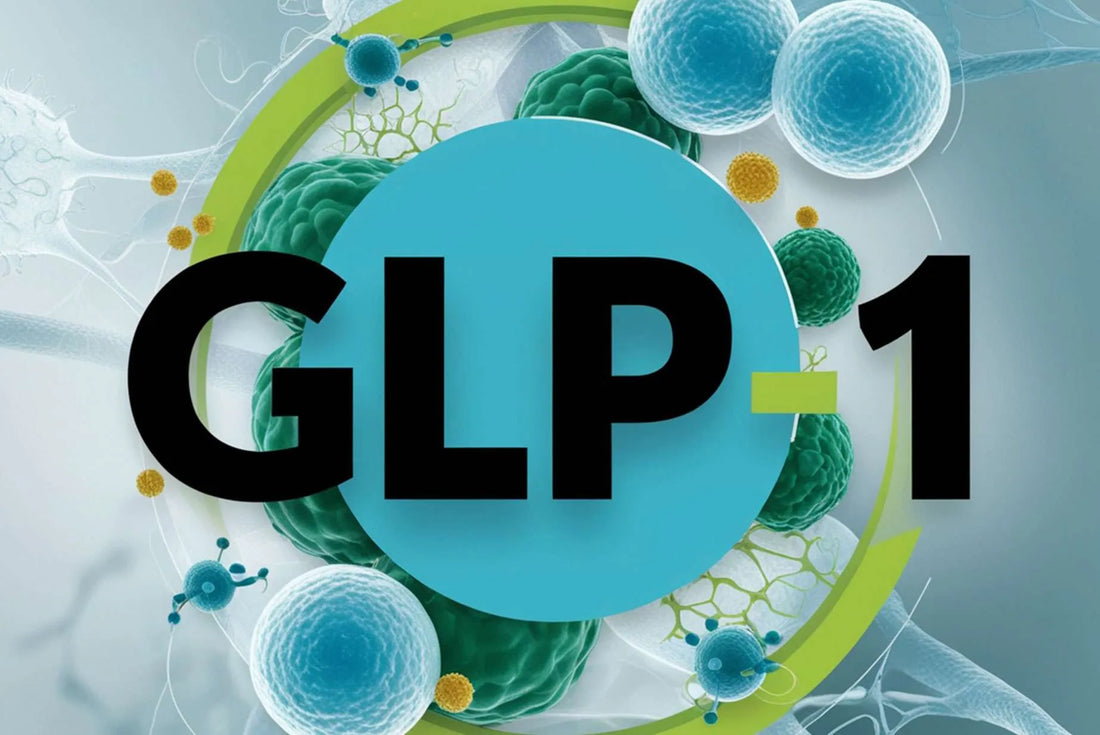
GLP-1 – What is GLP-1? How Does It Work
mWeight Management: The Benefits of GLP-1 in Brief
There have been few promising discoveries in weight management and treatment for obesity like the development and use of GLP-1 receptor agonists. These medications are seen as a breakthrough in the fight against obesity and provide hope to millions worldwide. In this article, we will delve into what GLP-1 is, how it works in the body, and its numerous advantages for weight management.
Understanding GLP-1
What is GLP-1?
GLP-1 stands for glucagon-like peptide-1, a hormone that is crucial in glucose metabolism as well as appetite control. It is one of the incretin hormones, which are secreted by the gut upon food intake. Incretins help to increase insulin secretion and reduce blood sugar after meals, making them important for metabolic health.
How Does GLP-1 Work?
GLP-1 works through binding receptors found on various tissues throughout the body, including the brain, pancreas, and digestive tract. When it binds with its receptors, several physiological actions are triggered:
- Increase Insulin Secretion: High levels of blood glucose stimulate the pancreas to release insulin through the action of GLP-1. This lowers blood sugar levels while storing energy as glucose.
- Inhibit Glucagon Release: A hormone called glucagon raises blood sugar levels by stimulating liver production of glucose; however, glucagon release can be inhibited by GLP-1, thereby aiding additional regulation of glucose.
- Gastric Emptying Slowed Down: The rate at which food leaves the stomach slows down under the influence of GLP-1, resulting in prolonged feelings of fullness and reduced appetite.
- Appetite Suppression: Central appetite centers located within the hypothalamus, responsible for hunger sensation, are suppressed by these hormones, thus activating the feeling of satiety.
Benefits of GLP-1 for Weight Management
Significant Weight Loss
One of the biggest advantages of GLP-1 receptor agonists is that they can lead to significant weight loss. Clinical trials have consistently shown that these drugs can induce remarkable weight loss among people with obesity or those who are overweight, with studies demonstrating reductions in body mass of more than 15% or higher, which is a substantial success compared to conventional approaches towards weight reduction.
Improved Glycemic Control
GLP-1 receptor agonists are also useful in improving glycemic control in type 2 diabetes patients, besides facilitating weight loss. By promoting insulin secretion and hindering glucagon synthesis, such drugs stabilize blood glucose levels, thus reducing the risks of complications associated with diabetes mellitus. Consequently, many obese people with diabetes consider using GLP-1 receptor agonists due to this dual advantage.
Cardiovascular Benefits
Obesity is one of the major risk factors for heart disease. However, GLP-1 receptor agonists do not just work by helping individuals lose weight but also have positive impacts on cardiovascular health as well. Clinical studies show that these drugs reduce adverse cardiovascular events, including heart attack and stroke. The precise mechanisms underlying this protection against cardiovascular diseases remain largely unknown, although they may involve improved blood pressure, lipid profile, and reduced inflammation.
Reduced Appetite and Improved Eating Behaviors
Control of appetite and eating behaviors presents a hurdle in managing weight properly. This situation has been ameliorated through the use of GLP-1 receptor agonists, which suppress hunger while increasing feelings of satiety. These medications lower calorie consumption by slowing the gastric emptying rate and affecting parts of the brain involved with feeding behavior, therefore promoting healthier eating habits.
Maintaining Lean Body Mass
While weight loss is beneficial to overall health, it is important to preserve lean body mass during the process. GLP-1 receptor agonists help maintain muscle and reduce body fat, which are significant for metabolic health and physical functioning.
Possible Psychological Benefits
Overcoming obesity often comes with mental burdens like low self-esteem, depression, and anxiety, among others. The effects of GLP-1 receptor agonists are mainly physiological, but they can lead to improved mental health status after weight loss and better quality of life.
Factors to Consider and Side Effects
Who Can Benefit from GLP-1 Receptor Agonists?
GLP-1 receptor agonists are usually prescribed for obese people or those who have overweight problems related to their health, such as hypertension and type 2 diabetes. However, not everyone is a candidate for these drugs, as they should be used under the guidance of a healthcare professional.
Common Side Effects
Like any other medication, there might be some side effects accompanying the use of GLP-1 receptor agonists. The most common ones include nausea, vomiting, diarrhea, and constipation. Most of these symptoms tend to diminish over time as the body adjusts to the medication, although in rare cases, more severe effects such as pancreatitis or kidney problems may occur, necessitating strict medical monitoring.
Long-Term Effects and Research
While the short-term benefits are well-documented, further studies are needed to understand the long-term outcomes and safety of GLP-1 receptor agonists. Scientists are continually working on new formulations and delivery methods to improve the effectiveness and tolerability of these medications.
GLP-1 receptor agonists represent a promising advance in weight management, offering benefits such as substantial weight loss, improved glycemic control, and cardiovascular advantages. Nevertheless, they are not a cure-all for weight-related issues but should be part of a comprehensive plan that includes lifestyle changes and regular medical check-ups. As research progresses, GLP-1 receptor agonists may become an even more important part of obesity management programs, providing hope for many people across the globe who suffer from this condition and wish to improve their health.









